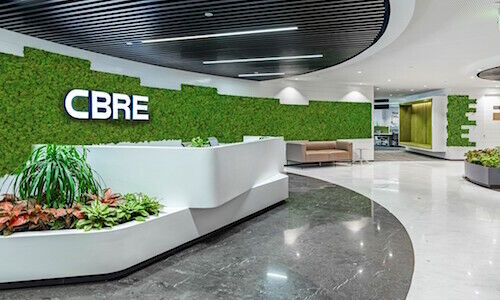HSBC Advocates for More Asian Say in Climate Change
HSBC chairman Mark Tucker lauded the efforts of global governments in creating standards and definitions for sustainability but expressed concerns that they could potentially leave out Asian economies.
According to Tucker, Asia is «increasingly where global leadership is coming from» with regards to sustainability, citing China and Japan’s rise to drive global agendas in the recent G20 forum alongside the greening of Hong Kong and Singapore’s financial markets.
«Asia is arguably where the fight against climate change will be won or lost,» he said during a virtual session at this year’s Asian Financial Forum (AFF).
Bidding for Asia EM
Although Tucker applauded industry efforts to set standards in the fight against climate change, he underlined his concerns that this could occur at the expense of capital flows for Asian emerging economies.
«Setting international standards and definitions for sustainability is essential to making progress and the EU has done very good work on this,» he said. «But there’s a danger that these standards may not drive investments into the emerging markets [in Asia] where it’s needed most for sustainable infrastructure.»
He also underlined this year’s Scotland-based COP26 (United Nations Climate Change Conference) conference as a «key moment to lock in the ambitious, low carbon policy goals», adding that «Asian economies need to play a big part in those discussions» on issues such as establishing carbon prices.
Better Without Trump
Tucker expressed greater optimism in the global fight against climate change, highlighting better prospects without the Donald Trump administration.
«If you look at the three economic blocks – U.S., China, E.U. – there’s plenty they don’t find agreement on,» he explained. «But I think where they are absolutely united today is their commitment, certainly under the new U.S. administration, […] to tackle climate change.»
$1 Trillion Firepower
«Last October, we announced a new commitment to reset our ambitions, which were significant in the first place, but to reset them to a higher level,» Tucker said, reiterating the bank’s goal to achieve net-zero carbon emission across its business by 2050.
«Aligning our own emissions and those of our portfolios and customers to the Paris Agreement goals. This is not insignificant when you think of this: our portfolio is largely Asian based and other banks are clearly in much more established marketplaces.»
The bank has committed up to $1 trillion of financing for this transition over the next ten years though it has yet to share details about its exact strategy.
Accelerated Growth
On HSBC’s business plans, Tucker said that with interest rates expected to stay low and an ongoing pandemic, the bank has changed its plans to further accelerate growth.
He highlighted South Asia and, in particular, wealth management opportunities in China's Greater Bay Area. He separately noted that HSBC was not looking into emerging non-traditional areas of finance like cryptocurrencies, despite related moves by competitors like Standard Chartered’s inroad into crypto custody or DBS’s recent launch of a digital exchange.



























